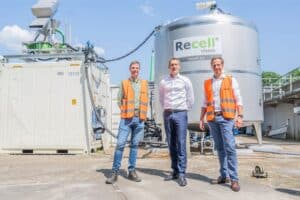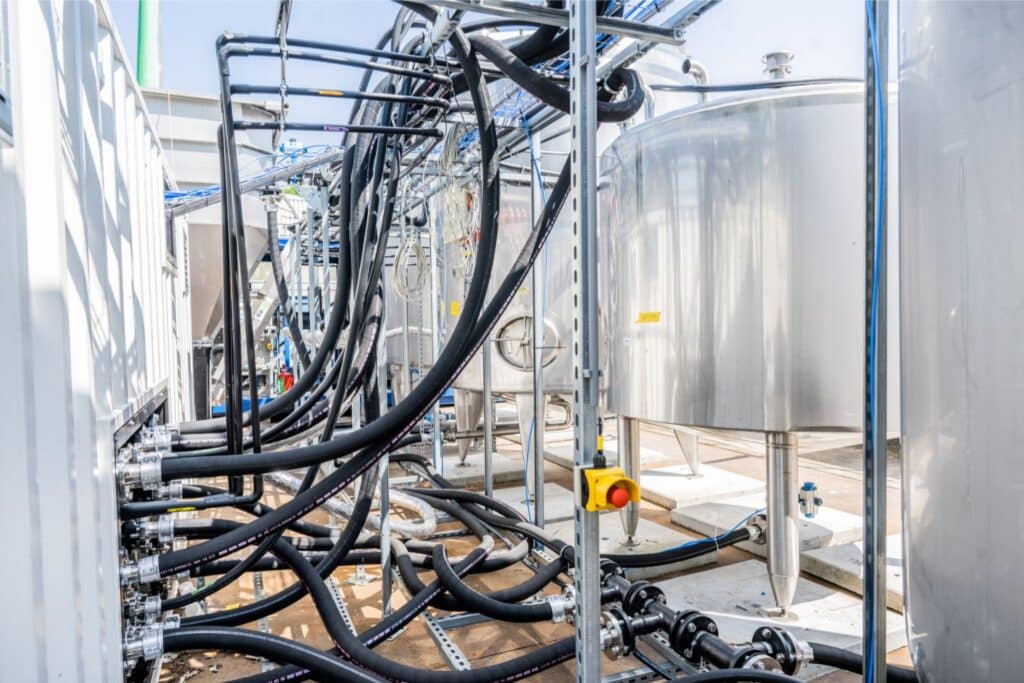– Opening demo factory –
Recell cellulose greens the chemical industry
– The Dutch company Recell recently opened an innovative demo factory in Leek Groningen, in The Netherlands. In this factory the company produces high-quality sugars for chemical industries. These sugars can be used to produce highly sustainable products, such as bioplastics, coatings and detergents. The sugars are produced through a unique process that is fed by cellulose recovered from residual streams. With their advanced process, the company manages to reduce both CO2 emissions and waste costs in a single and circular manner, enabling the most sustainable chemicals yet available.
Glucose, or sugars, is the basis for many chemical applications, utilised on an industrial scale. The green chemistry frontrunner Recell has, in collaboration with a number of partner companies, developed a process that isolates cellulose from various residual and waste streams, followed by a conversion into high-quality glucose molecules. This development by Recell essentially re-utilises large, discarded cellulose-rich volumes from for instance the paper, cardboard, textile and recycling industries, processing them into sustainable chemicals and so greening the economy.
Green alternatives
Erik Pijlman, founder and CEO of Recell, says, “Chemical industries are on the look-out for green molecules as an alternative to currently used fossil-based molecules. Agriculture is already considered a good alternative, but Recell even takes it a step further. In their process less energy, water, fertilizer, time and emissions are involved significantly lowering environmental impact. Furthermore, Recell does not compete with food production, which is an increasing concern because of population growth globally.”
A stepping stone towards a large-scale plant
The demo factory is currently operated at a treatment plant in Leek Groningen, owned by the Dutch Water Authority Noorderzijlvest. “That is where the conversion to glucose from various waste streams is being optimized,” Pijlman explains. “The Water Authority is excited to contribute to this sustainable solution. For Recell this is an important step towards full-scale production.” For Recell’s lab team, the development was a process of trial and error. Technical manager Yme Flapper says, “Fortunately, our committed team and partners have the exact expertise and experience that is needed to develop this unique process.” This is being recognized by several international chemical industries with whom the company has strategic collaborations.
Waste becomes a raw material
“Worldwide it is unique that green raw material is produced from residual cellulose at this scale,” Ian Jordens, the commercial director, says. “If we want to succeed in phasing out fossil sources and create a sustainable economy we need to scale up, so at the same time, we are designing the first full scale factory with a capacity of 50 kilotons. We have mastered the technique to such an extent that our goal to compete in value with the alternatives can be achieved. To green the entire value chain, we collaborate with various chemical companies.”

Recell Group
Recell produces building blocks for the green chemistry, construction, infrastructure, and agro sectors based on reclaimed cellulose from various residual streams. The company’s objective is to replace fossil resources such as oil, gas, steel and concrete in order to make a positive contribution to the climate and environment.
Photography: Niels Knelis

